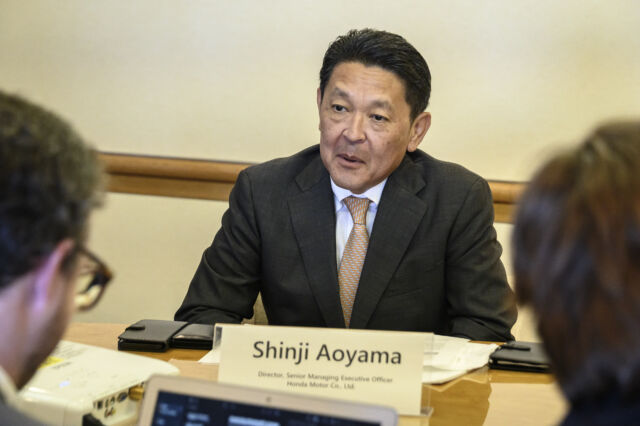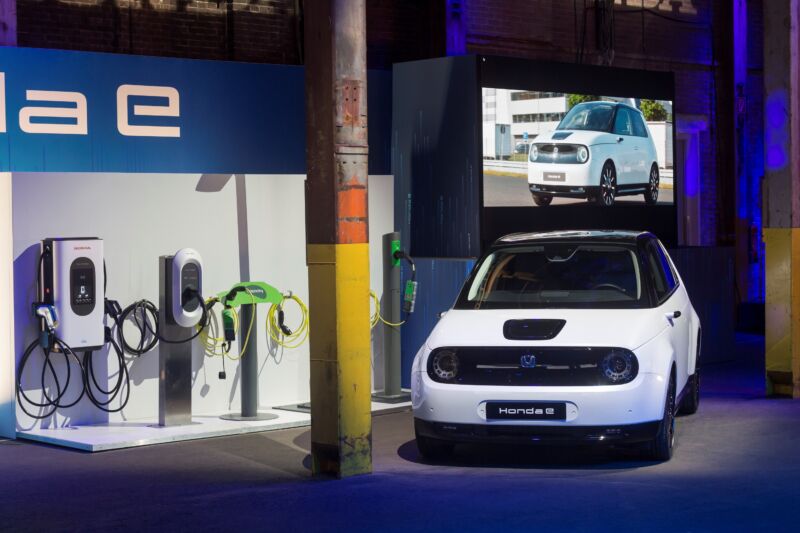By all rights, Honda should be further along with its electrification strategy. The Honda Insight beat the Toyota Prius as the first mass-market hybrid to be introduced into the US market by seven months. Instead, other manufacturers seemed to have jumped on the EV train while Honda was still buying a ticket. After appearing to languish, the company announced that its first modern EV in the US would be the fruit of a team-up with GM. But under new leadership, it's working with partners and striking out on its own for its long-term EV strategy.
At its research and development facility in Tochigi, Japan, Honda is working on what it believes will be the breakthrough that brings solid-state batteries to the market. While Honda is happy to work with General Motors and Sony on electrification efforts, the automaker is working solo to bring the technology to the masses by the end of the decade.
"In the springtime of 2024, we will start a pilot line (for manufacturing). Then if we can be successful, we believe we can launch a vehicle with a solid-state battery in the latter part of the 2020s. 2029, 2028," Shinji Aoyama, Honda's global leader of electrification, told Ars Technica during a roundtable interview at Honda headquarters in Tokyo.

At the same meeting, Honda global CEO and president Toshihiro Mibe added that the automaker hasn't decided which vehicle will be the first to be outfitted with a solid-state battery. Mibe noted that the company would like to outfit not just cars with the batteries but also motorcycles. Plus, there are the more financially lucrative uses: selling the technology to partners and other automakers. However, it'll likely be two to three years before Honda lays out its solid-state business plan. But once the technology is ready to go, Honda will be happy to sell it to anyone.
First, it has to contend with the issue of solid-state longevity. The batteries might be potentially cheaper, safer, charge quicker, and hold more energy per pound, but they also don't have much of a life span.
A rolled sandwich
At its R&D facility, Honda hopes to solve the dendrite issue with solid-state batteries with fiber. Dendrites are tiny crystal spikes that form in the lithium metal anodes of solid-state batteries over time. The problem is that the dendrites bore through the electrolyte over time and cause a short circuit during charging, reducing the battery's life span.
Honda's solution is to sandwich the solid electrolyte with a polymer fabric. The fabric sits between the electrolyte and the positive and negative electrodes. All of these elements are roll pressed instead of stamped, which Honda believes should give the company greater control over the thickness of each battery. Both the makeup of the polymer fabric and the amount of pressure Honda is using with its roll press are proprietary. As expected, they wouldn't give us details about either.
The fabric buffer layer should keep dendrites from forming without sacrificing the battery's capabilities. At least, that's what Honda hopes. The automaker is still in the early stages of testing these batteries at its facility. Still, they have to work quickly if they want to be ready for the pilot manufacturing of solid-state batteries at the Sakura, Japan facility in the spring of 2024.



3175x175(CURRENT).thumb.jpg.b05acc060982b36f5891ba728e6d953c.jpg)

Recommended Comments
There are no comments to display.
Join the conversation
You can post now and register later. If you have an account, sign in now to post with your account.
Note: Your post will require moderator approval before it will be visible.